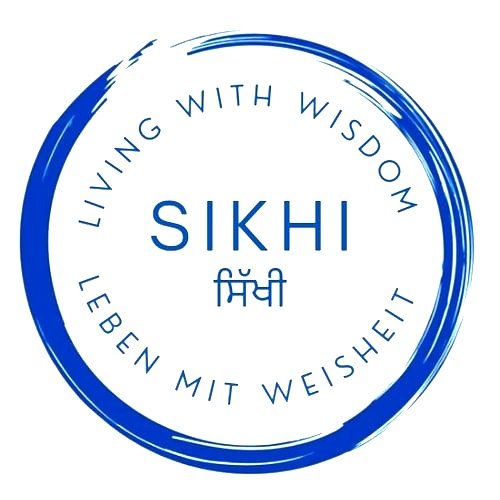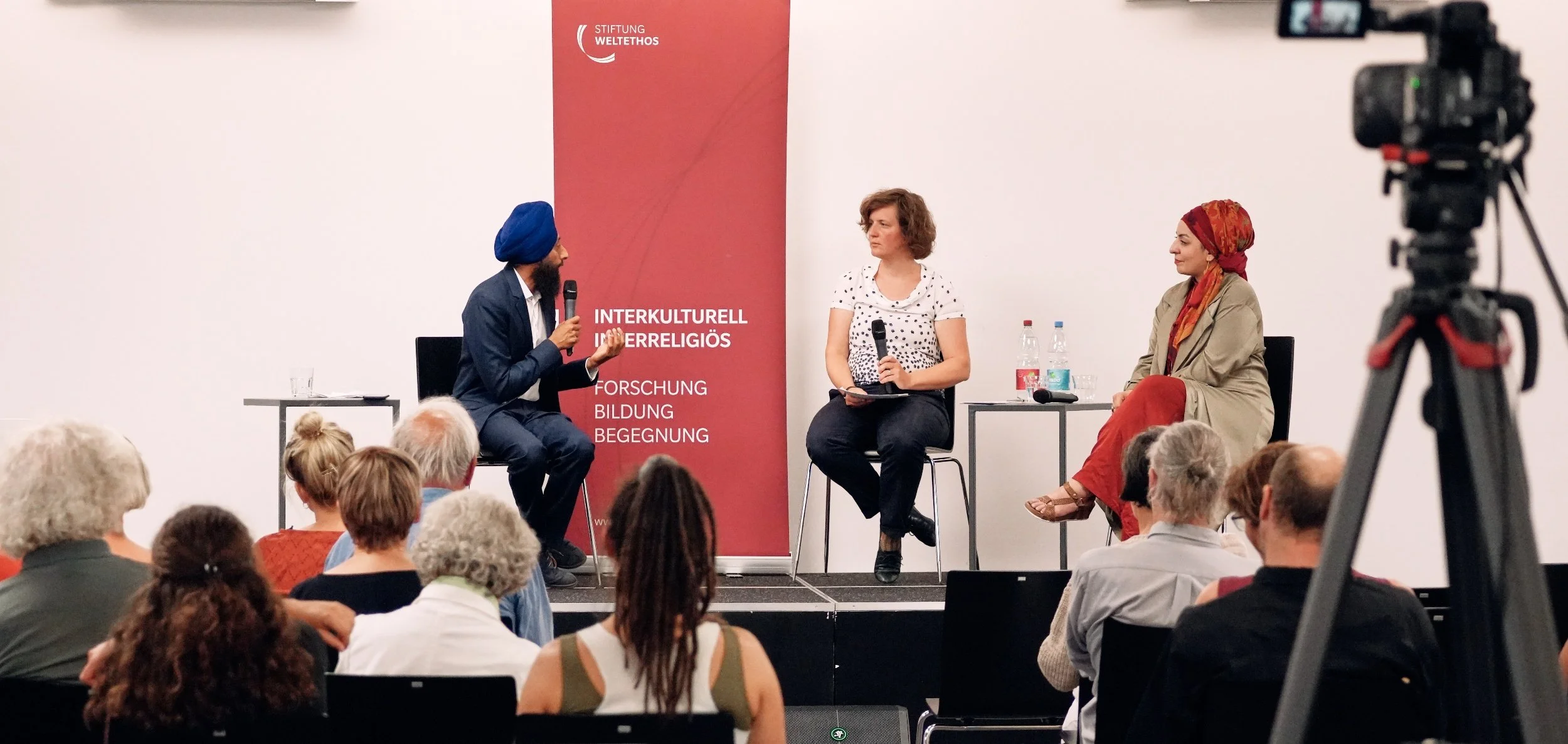Is God green?
Panel discussion on environmental protection from a spiritual perspective of the Global Ethic Foundation. The panelists discussed the importance of holism, cyclical thinking, and the transformative process of decolonizing linear growth-based thinking. Photo: Stiftung Weltethos
Climate justice and religion
It was an evening with a unique atmosphere for a panel discussion. There were no debates about the percentage increase in CO2 or the rising temperatures. Nor was there a discussion about who is right and who is not. The central focus of the panel with representatives of Sufism and Islam was on the significance of spirituality in the climate discourse, finding common insights and working together to counteract the destruction of nature. The panelists, Feride Funda G.-Gençaslan and Khushwant Singh, were united in their concern for Mother Earth, recognizing the need to recall our role as guests on the planet of ephemerality.
To discuss the role of religion and religious communities, the Global Ethic Foundation and the Academy of the Diocese of Rottenburg-Stuttgart deliberately invited representatives of so-called smaller religious communities. The idea was to make visible positions that receive little attention in the heated societal discourse on the climate crisis. Spirituality and wisdom were at the forefront in this event, along with the question of how these can be brought into conversation with secular thinking.
Both speakers saw the importance of religious communities in reflecting honestly on the crises and providing a larger framework for guidance. Many religious traditions contain values that foster sustainable attitudes and approaches which are in tune with nature. Religious communities have a broad international base and, according to the speakers, could play a more significant role in mobilizing people for environmental protection. They advocated for collaboration between religious and other civil society actors in this regard.
In the face of the global environmental crisis, can religions provide hope, or is it already too late?
In response to Dr. Theresa Beilschmidt’s question on resignation and hope, Feride Funda G.-Gençaslan referred to the Sufi tradition, and said: “Faith and hope are companions.” Humanity is a servant on Earth who experiences both joy and suffering in a world characterized by dual tensions. Suffering serves as a reminder of what is ultimately essential. According to the Quranic interpretation, humanity is inherently forgetful. Individuals forget their place, their role, and their responsibility in the creation. Therefore, people must be reminded of their responsibility as co-creators and take appropriate action. Both panelists highlighted the need to ask what to change within us if we want to achieve more (climate) justice.
Khushwant Singh, voluntarily engaged in the SikhiCouncil, and who heads the Secretariat on the International Partnership on Religion and Sustainable Development (PaRD), emphasized the importance of holism and advocated for cyclical thinking instead of linear growth-based thinking. This transformative process he calls “decolonizing one's own thinking.” Learning responsibility is an essential prerequisite to this and needs to be strengthened in education, he elaborated. Dealing with climate and environmental destruction is not just about technical solutions, Singh emphasized, but about bringing about a shift in consciousness that involves contemplation, humility, and taking appropriate responsibility.
The evening event, organized in cooperation with the Academy of the Diocese of Rottenburg-Stuttgart, was part of a series of collaborative events focusing on interreligious environmental ethics. In the coming year an interdisciplinary conference is being planned to continue the public discourse on climate and environmental protection.

